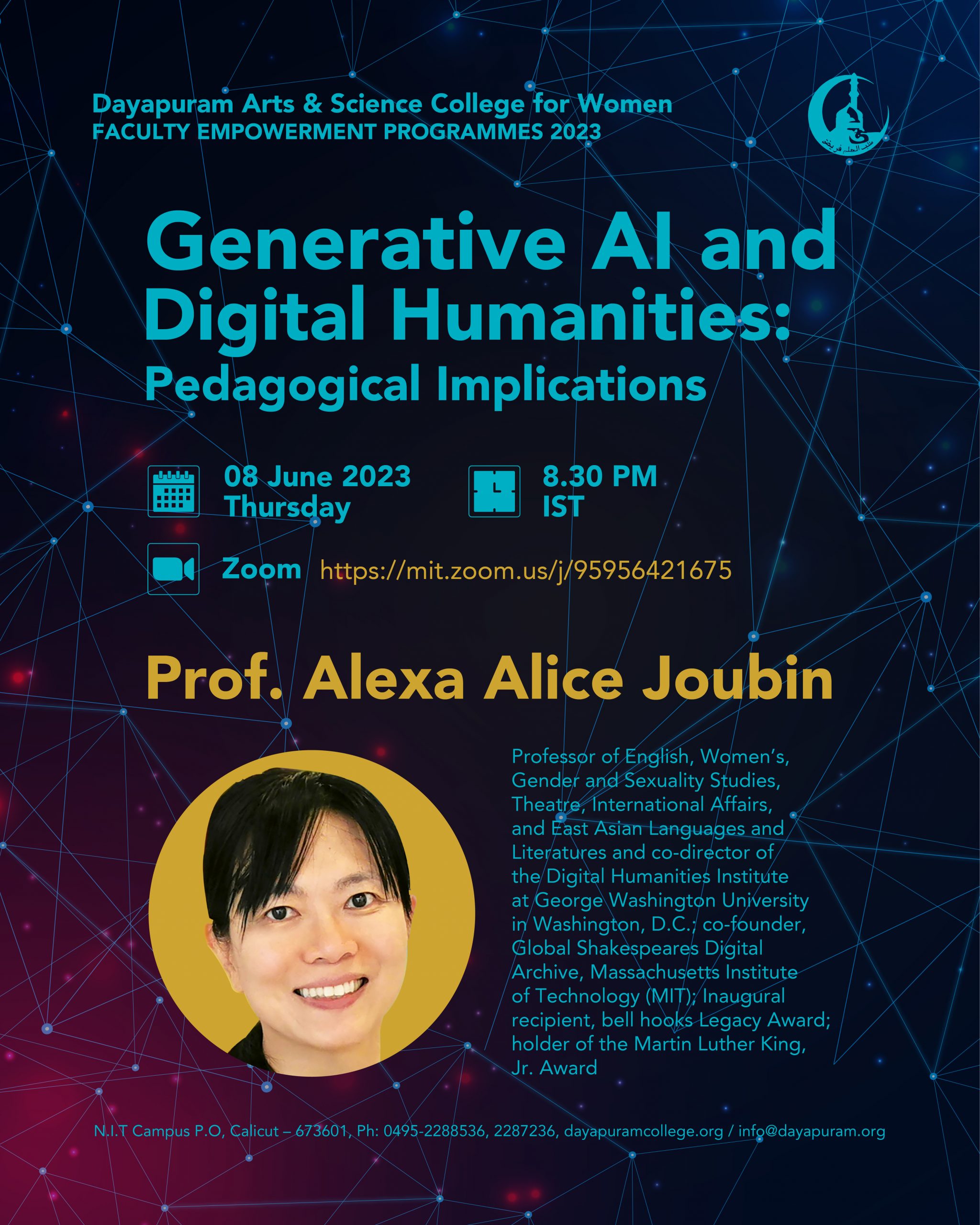Generative AI and Digital Humanities: Pedagogical Implications
Dayapuram Arts and Science College for Women, Kerala, India ::: June 8, 2023
Generative artificial intelligence (AI) tools like ChatGPT are leaving educators anxious about the relevance of assignment submissions. But alarmism about technology will eventually disconnect teachers from the student generation. There is a third route, the proactive mode: think of innovative ways in which AI can be used to enrich and strengthen student skills.
Winner of bell hooks Legacy Award and Martin Luther King Jr. Award, Alexa Alice Joubin has been developing such a methodology. Dayapuram Arts and Science College for Women in Kozhikode, Kerala, managed by academic volunteers from across Indian institutions, is happy to host a presentation by Alexa Alice Joubin as part of programmes that empower faculty.
Based on her latest research, Joubin argues that generative AI tools are
- performance machines
- simulacrum machines
- social collaboration tools that bring to light previously unnoticed connections between humans
It is crucial to recognize and unpack how generative AI tools such as ChatGPT are changing the publics’ relationship to themselves. ChatGPT’s outputs should be analyzed as a form of theatrical performance. It draws on users’ prompts and the publics’ collective memories to produce performances for its user-audiences.
Since ChatGPT is coded to produce syntheses of anonymized public voices in its data sets, it is a “ghost” of the publics. Like King Lear, whose question, “Who is it that can tell me who I am?,” prompts the Fool’s witty answer, “Lear’s shadow,” users of ChatGPT engage in a conversation with their own shadows.
In fact, if ChatGPT were to use first person pronouns at all, it should use “we,” instead of singular first-person pronouns in its current iteration, because it is representing anonymized public voices from the data sets it trained on.
Joubin maintains that what is missing from the current debate are insights from performance studies. ChatGPT is coded to perform particular discursive tasks through simulation. A more accurate and nuanced description of ChatGPT is that it is an aesthetic instrument rather than an instrument of reason or an epistemological tool.
ChatGPT is also a simulacrum machine that simulate human speeches and realities in order to create new realities. The simulacra go beyond mediations of realities to create their own fiction of the real.
This illustrated presentation analyzes what these AI tools can realistically accomplish in the higher education context and what the substantive, rather than hyped, challenges are.
Joubin proposes new pedagogical strategies to teach with AI rather than against it. Working with one’s own shadows and working against the AI “truths,” students could fine-tune the Socratic Method of Inquiry and open-ended research questions.
